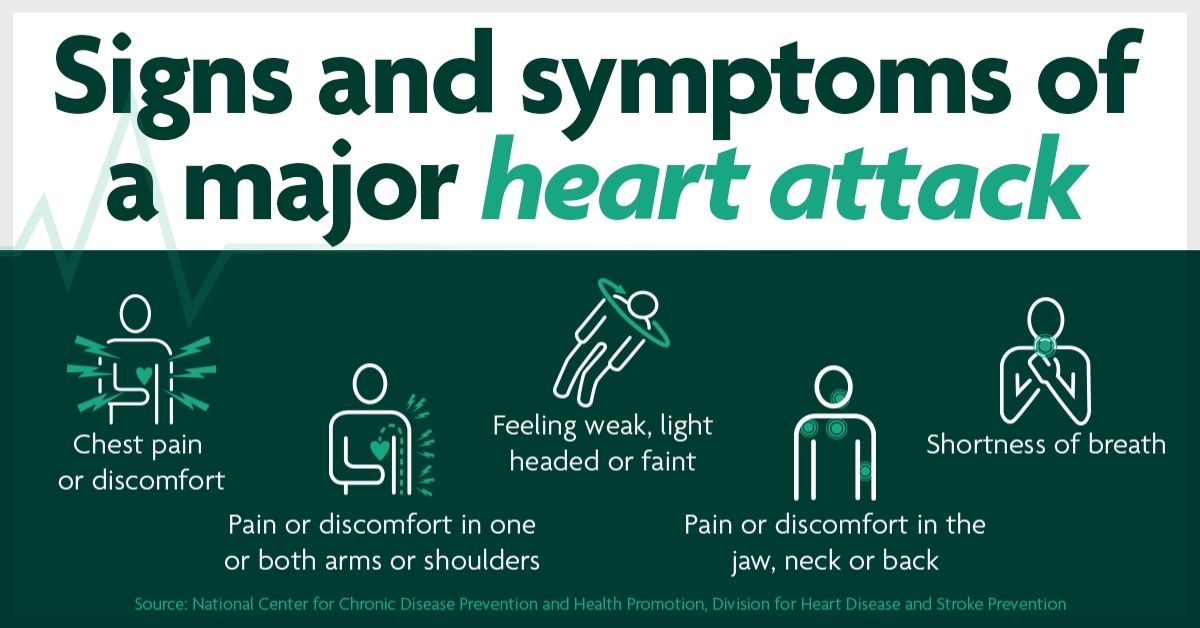
Tips to keep your heart healthy
Feb 6, 2025, 3:15:30 PM | Reading Time: 5 minutesAmerican Heart Month happens every February. It’s a time to focus on cardiovascular health. Considering that about 702,000 people in the United States died from heart disease in 2022 alone1 according to the CDC, it’s an important topic for anyone keeping an eye on their health. Although there are a variety of risk factors, the good news is that you can actively prevent heart disease. It’s a good time to focus on how to improve your heart health.
Maintain a heart-healthy diet
The best way to reduce your risk for heart attacks and heart disease is to eat healthily. A heart-healthy diet includes high-fiber foods such as whole grains, fruits, vegetables, and certain fats (like those found in olive oil and fish), as well as foods that are low in saturated fat, added sugars, and sodium.
Be aware of your portion sizes
How much you eat is just as important as what you eat. Using a smaller plate, filling that plate with more low-calorie, nutrient-rich foods, and keeping track of servings2 will help keep you from taking on more calories than you need.
Practice moderation when it comes to alcohol
Drinking too much alcohol can increase your risk of heart disease. A moderate amount of alcohol means one drink or less per day for women and two drinks or less per day for men, according to health.gov.3
Avoid smoking
Smoking cigarettes can harm nearly every part of your body, including your heart and blood vessels, according to the U.S. Food and Drug Administration (FDA). When cigarette smoke is breathed in, the toxic mix of chemicals can interfere with some pretty important stuff, like the delivery of oxygen-rich blood to your heart and the rest of your body. If you do smoke cigarettes, the CDC advises that quitting smoking will benefit your heart and cardiovascular system right away, as well as in the future.
Get up and get going
Exercising regularly can improve your cardiovascular health to strengthen your heart and keep it healthy. To prevent health problems, it’s a good idea to spend at least 150-300 minutes of exercising each week, according to the World Health Organization.4 Being active will not only help to prevent heart disease, but it can also help you feel better, think more clearly, and perform daily tasks more easily.
Keep stress low
Excess stress can contribute to high blood pressure, strain your heart, and may increase your risk for heart attacks or strokes. Learning how to cope with anxiety and manage stress can improve both your mental and physical health. To reduce stress levels in your life try deep breathing5, spending time in nature, or speaking to a professional counselor.
Can I still get life insurance with past heart issues?
Chris Regione, Chief Underwriter for Sammons Financial Group, says it’s not a deal-breaker. “Midland National has insured many people that have either a history of coronary artery disease, certain types of arrhythmias, or valvular disorders.” If you’re thinking about seeking out life insurance coverage or have been putting it off, Regione’s advice is simple: don’t wait.
How much will life insurance cost me?
The cost of life insurance can still be affordable, even if you have a history of heart health issues. Regione says that the price is based on a variety of factors, like physician follow-up and complying with your doctor’s recommendations to keep heart problems under control. “Those are some of the factors that help get you coverage at the best possible rate class,” added Regione. This American Heart Month, do yourself and your family a favor – spend some time considering the ways in which you can better protect your heart with healthier living and your family’s financial future with life insurance.
What are some of the signs of a heart attack?
A heart attack can occur part of the heart is not getting enough blood. Some common signs of a heart attack include:

(source: https://www.cdc.gov/heartdisease/heart_attack.htm)
A heart attack can happen quickly with signs occurring right before, but sometimes they manifest slowly. Contact your doctor if you develop any of the symptoms above.
1 Source: “Heart Disease Facts” Centers for Disease Control and Prevention, October 24, 2024
2 Source: “Suggested Servings From Each Food Group” American Heart Association, August 29, 2024
3 Source: “Physical Activity” World Healthy Organization, October 5, 2022
4 Source: “Physical Activity” World Healthy Organization, June 26, 2024
5 Source: “Managing Stress” U.S. Centers for Disease Control and Prevention, August 16, 2024
CDC.gov (www.cdc.gov) is your online source for credible health information and is the official website of the Centers for Disease Control and Prevention (CDC). Placement of a CDC.gov linking graphic or text link is to be used only as a marker to the CDC.gov home page. A link does not indicate any form of endorsement or approval from CDC, or the U.S. Department of Health and Human Services.
The American Heart Association is a relentless force for a world of longer, healthier lives for all.
The opinions and ideas expressed by individuals providing testimonials are his own. The opinions are not indicative of future performance or success and may not be representative of the experience of other agents.
B1-NA-2-22-IYL
REV 1/2025
